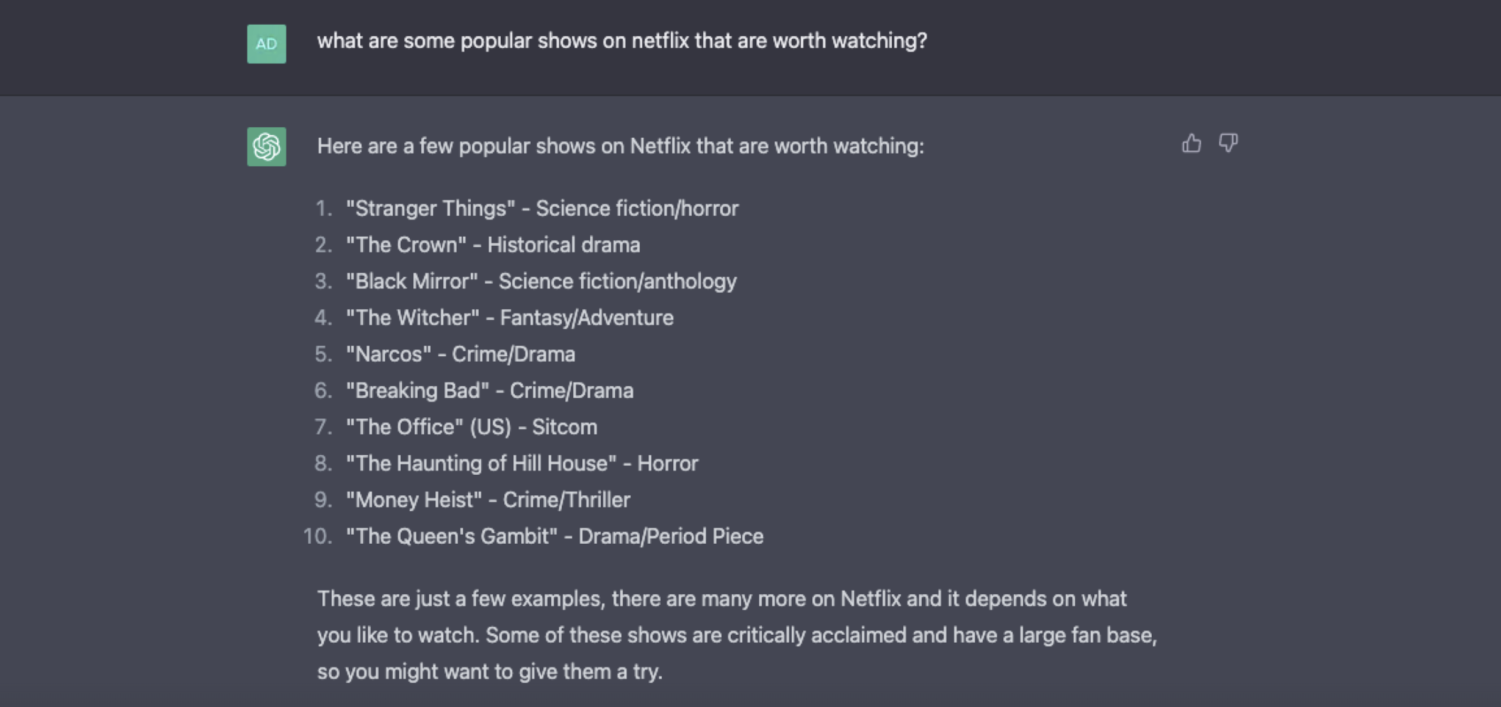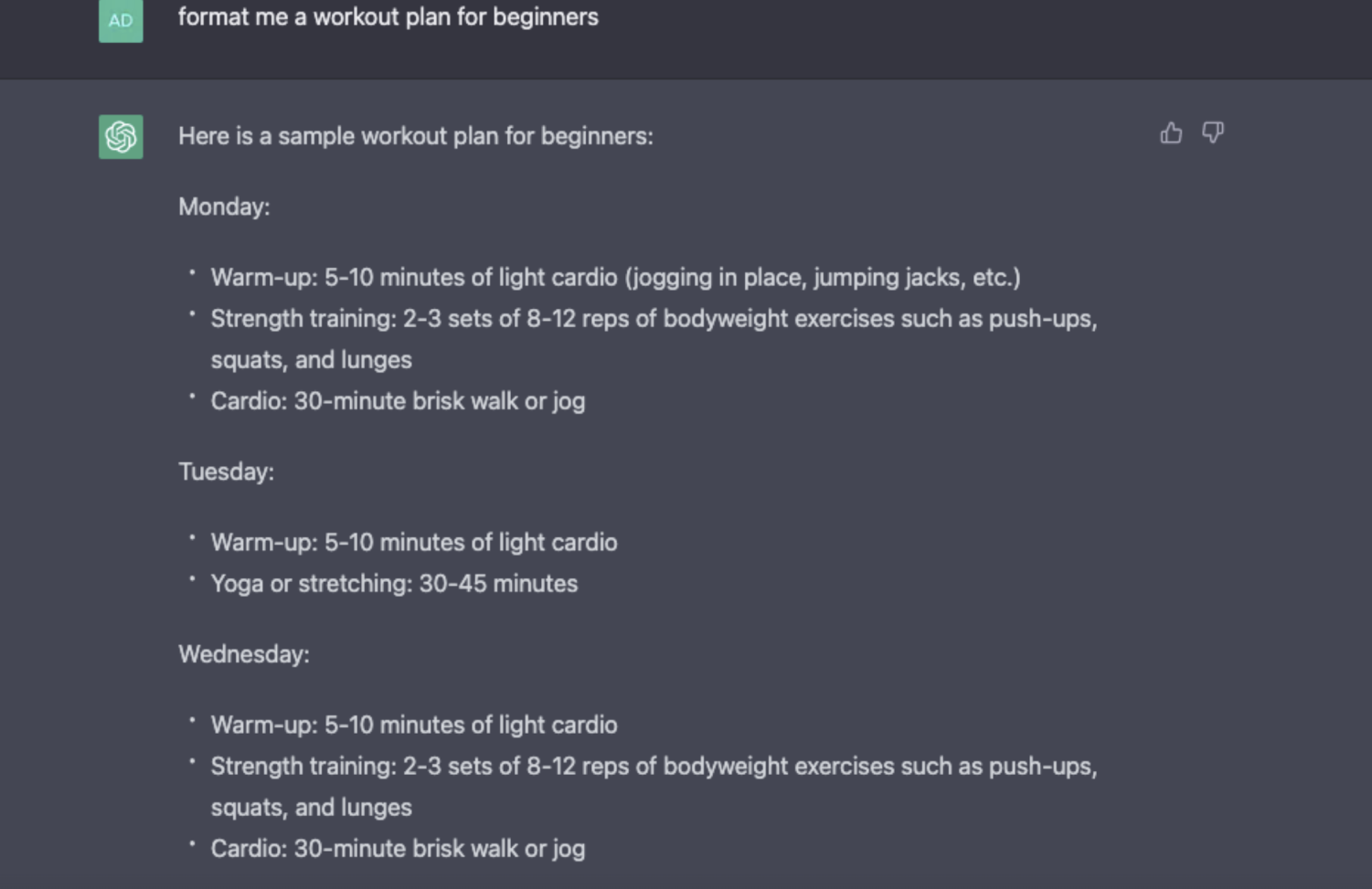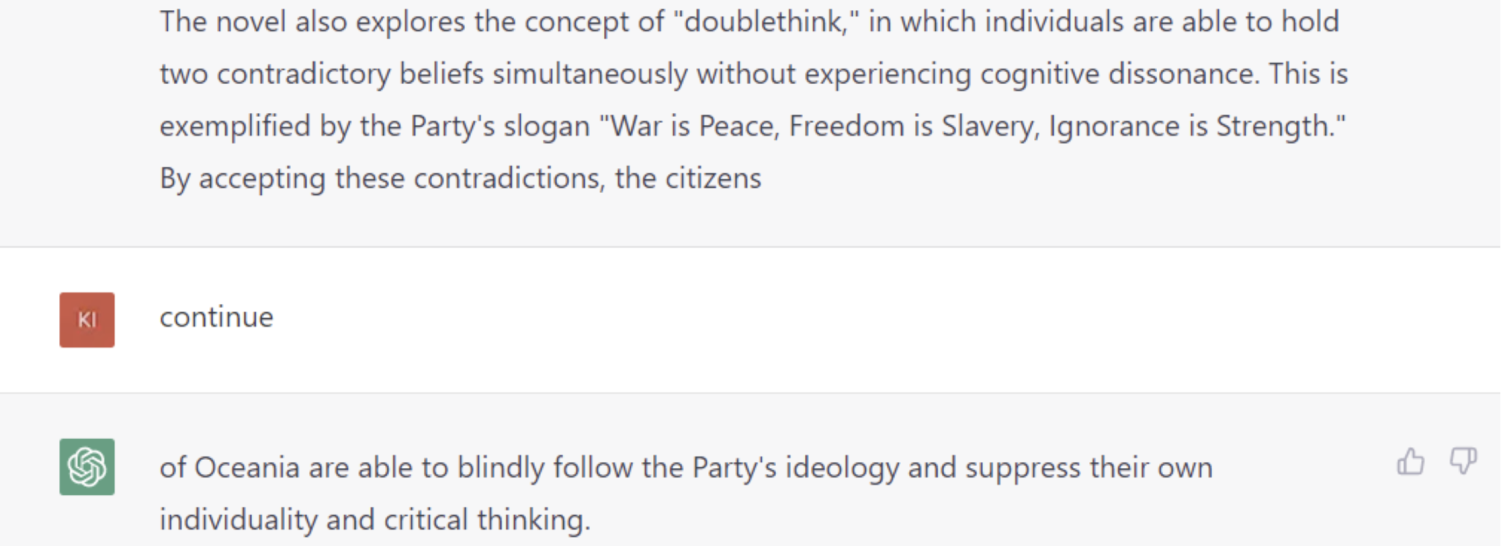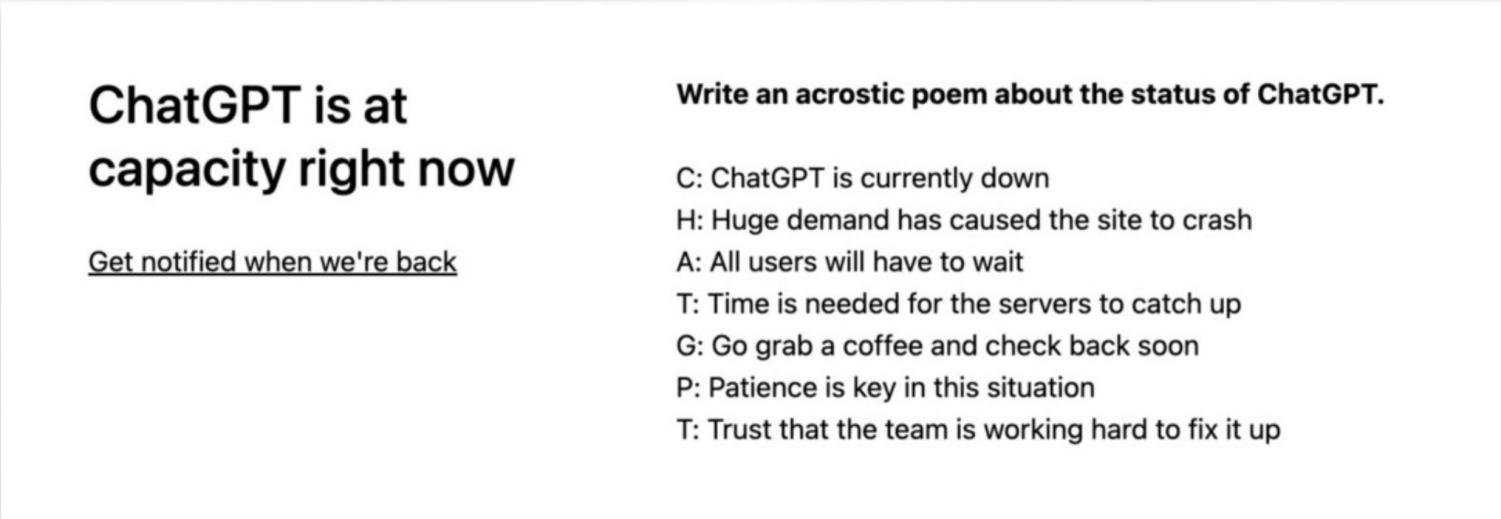The Pros
AI, regardless of its high intelligence, will never be able to replace homo sapiens. Not in how we socialize, grow, develop, think, and respond to our environment, as it lacks the capacity for emotions, creativity, and consciousness. However, one would be incredibly ignorant not to recognize the benefits of Artificial Intelligence on how humans live and carry out daily tasks. The increase in development in ‘thinking’ computer systems is revolutionizing our Earth and will continue to do so.
Recently, OpenAI, an artificial intelligence organization, released ChatGPT. This AI has single-handedly managed to create a previously unheard-of commotion. Only five days were needed for ChatGPT to reach 1 million users. Five days, let that sink in. These numbers are minuscule compared to Netflix’s three-and-a-half-year wait and Facebook’s ten-month wait. If you have yet to hear about it, you’re missing out, and I’m here to tell you why that is!
Many might consider ChatGPT as a cheat, an easy way out. That may be true, but it truly all depends on the user’s choice of how and why to utilize the program. Every revolutionary development throughout history, such as the industrial, technological, and digital revolutions, has stoked fear and dread of the future and how it will affect human behavior. In the end, they largely contributed to significant advancement in numerous fields. That is precisely what ChatGPT is currently doing. If used correctly and morally, students globally would greatly benefit from ChatGPT as it has so much to offer.
ChatGPT is a language model trained on a large corpus of text data, allowing it to generate human-like responses to text inputs. However, it is imperfect and may have limitations regarding its ability to produce a wide range of responses or provide detailed information on specific subjects. Some may argue that ChatGPT’s responses can be stilted or repetitive. However, it is essential to recognize that ChatGPT is not intended to replace the role of a student or expert in a particular field. Instead, it is meant to support and assist in the learning process. If used in this way, the limitations of ChatGPT should not be a significant concern.
ChatGPT can be used as a source of inspiration for students. For instance, students can use ChatGPT to generate creative writing prompts or develop ideas for research papers or projects. Not to mention, ChatGPT can also be used as a writing tool for students, as it can help them with their grammar, sentence structure, and punctuation. It can also assist students with brainstorming, outlining, and organizing their thoughts, which can especially be useful to those struggling with their writing. Ultimately, students can improve their writing by using ChatGPT to further enhance their knowledge and understanding of writing crafts.
Furthermore, ChatGPT includes so many more features than just writing essays. ChatGPT could be used for practically anything.
Are you on the hunt for a new TV series to watch or a book to devour? ChatGPT can help you discover new and exciting options that align with your preferences and interests. You can access a wide range of recommendations for TV shows and books with just one simple command. Whether you’re in the mood for a romantic comedy or a thrilling mystery, ChatGPT can provide you with a curated list of options. The AI considers your preferences and provides you with a respectful list of options. Whether you’re in the mood for something new or want to revisit an old favorite, ChatGPT is here to help you find the perfect TV show or book to enjoy.

As we enter 2023, many of us set resolutions to improve our lives somehow. One common resolution is to get in better shape and improve our overall fitness. But for some, the thought of getting fit can be pretty overwhelming, especially if you don’t know where you should begin. That is precisely where ChatGPT comes in. ChatGPT can help you set realistic and achievable goals for your fitness journey and provide the guidance and support you need to reach them. Whether you are looking to build more muscle or improve your overall health, ChatGPT can provide you with a personalized workout plan and tips and advice on staying motivated and on track.

ChatGPT is our today, tomorrow, and future. From here, the technological world will only advance further, and it comes with numerous benefits.
The Cons
“Write a literary analysis for 1984,” When you type this prompt into ChatGPT, a new infamous product released by OpenAI, the bot immediately crafts an essay with the given context. At first glance, the analysis might appear authentic, but you will quickly notice its overly repetitive reasoning and monotonous style. Yes, writing follows the basic rules of English, but no, this isn’t the robot that will finish your homework.
When given creative prompts, ChatGPT typically writes a short story under its word count that quickly explains the basic plot of the narrative through minimal literary devices. Unless you request literary craft, such as metaphors, the bot won’t use any. This unnatural writing style is exacerbated by superficial dialogue and “telling” the reader what the characters are doing instead of “showing.” The lack of necessary details already fails to meet the requirements for most high school English classes and creates a prosaic piece of writing.
For instance, when I directed ChatGPT to write “a creative fiction about childhood friends,” the bot produced a few paragraphs more likely to be in a magazine interview about two celebrity best friends. By writing, “They would meet up on the weekends and catch up on everything that had happened during the week,” the bot misses an opportunity to elaborate on a specific moment, entice the reader, or convey creative details rather than a vague description that detrimentally neglects all five senses. The lack of sophisticated vocabulary and tone also results in an impassive commentary that is neither a fictional writing style nor a journalistic report. It’s a lukewarm, incompetent, and disappointing piece.

Some could argue the creators of ChatGPT designed it for persuasive essay prompts rather than creative work, but it lacks crucial parts of analysis in the 1984 piece. This is undoubtedly better than the creative fiction, but still mediocre. The bot refuses to add evidence or examples that support how the Oceania citizens suppress their thoughts or reasoning as to why the people blindly accept these conditions. Although it correctly identifies the slogan of the Party, ChatGPT fails to explain the use of the slogan or how it pertains to the government’s relation to the people. The bot’s vague analysis only raises another question: how does any of this contribute to censorship, real life, or totalitarianism?

Even if technological innovation later advances creative AI skills, this invokes a new dilemma that questions the inherent motivation to attend school: why learn to think and write if an AI robot could easily replace students? Unfortunately, students feel this contradiction because an AI spends less time and effort significantly improving its writing skills.
New, unimaginative technology, like ChatGPT, uses trends to attract ephemeral viewers, displaying the aforementioned “doublethink” irony that results from its artificial nature. After a while, students and others will find the bot inept, move on, and write their work. Regardless, suppose students use ChatGPT now to complete their assignments. In that case, it will inevitably reduce the quality of their work by encouraging students to rely on the internet and others’ opinions and poke fun at how much time and effort students dedicate to their writing.
As ChatGPT continues to crash from transient high demand, students and schools are in luck until the bot becomes available to the public.

